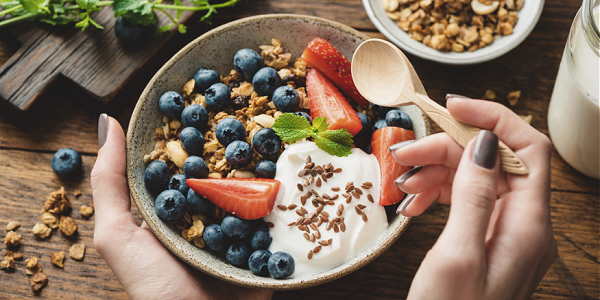
Sugar Alcohol and Diabetes
Diabetes is a chronic condition in which the body's cells are unable to use glucose as energy in an efficient manner, largely in the absence or resistance to insulin. Produced by the pancreas, insulin enters the bloodstream after sensing the presence of glucose (following the intake of carbohydrate sources). Insulin essentially acts as a key and unlocks the cell, allowing glucose to work its way into the cell and offering energy. If insulin is compromised or reduced, glucose is unable to enter, ultimately sticking around in the blood and creating high blood sugar. Additionally, high blood sugar is greater to occur following the consumption of products rich in sugar.
But sugar alcohols are actually quite different than day-to-day table sugar, as they are lower in calorie and sugar content. Sugar alcohols are largely used to replace common table sugar and widely found in baked goods and sweets, including ice creams, pastries, and chewing gum. Such products are promoted as "sugar-free" and "reduced-carb" and may contain the following common sugar alcohols: erythritol, mannitol, maltilol, sorbitol, and xylitol.
Is Sugar Alcohol Bad for Diabetics?
The answer to the question is not necessarily direct, as there are characteristics to consider. First off, "sugar-free" and "reduced-calorie" products may still be rich in carbohydrate and fat. And with carbohydrate being the key player in blood sugar regulation, it is still important to be mindful of the total carbs identified in the nutrition facts label - 15 grams of carbohydrate is equivalent to one carb exchange or serving. But in a nut-shell, sugar alcohols are not exactly bad for diabetics, but may be beneficial related to its generally lower sugar and calorie content compared to their counterpart. Limited sugar can lessen the risk of blood sugar spikes and fluctuations, ultimately reducing long-term consequences of uncontrolled diabetes. Additionally, products lower in calorie may provoke weight loss. Especially in individuals with type 2 diabetes, losing weight can improve blood sugar levels by reducing insulin resistance and allowing the cells to use glucose more efficiently.
However, the long-term effects on diabetes are not well-established. Until more concrete and evidence is supported, keep its intake in moderation. Try sticking to whole grains, fresh fruits and veggies, lean proteins, dairy products, and legumes to keep not only sugars and calories in check, but obtain the wide variety of valuable nutrients each food group offers.







